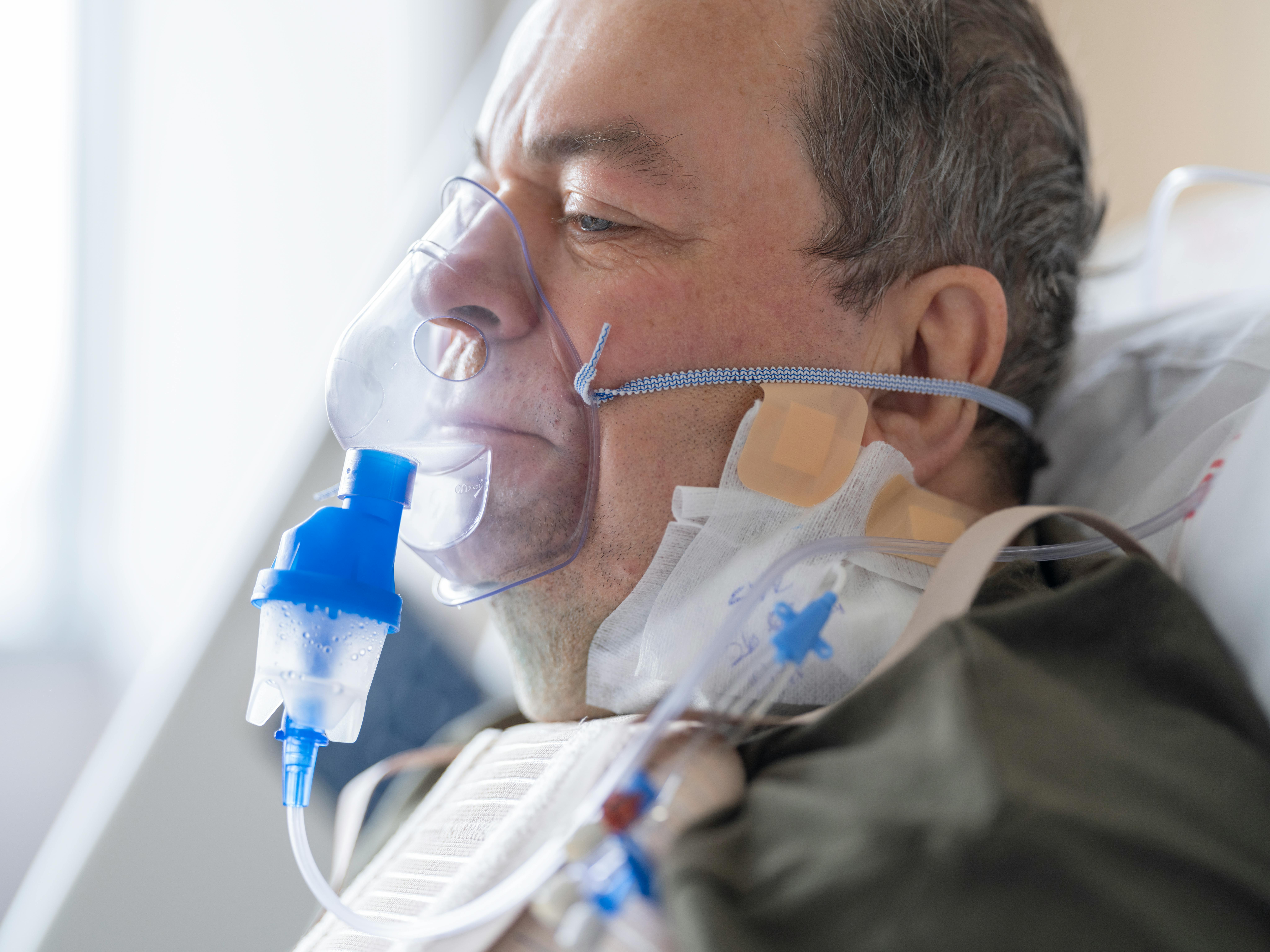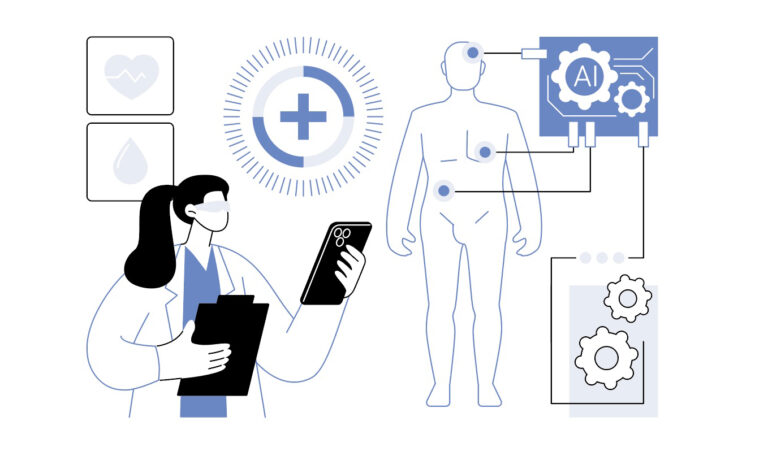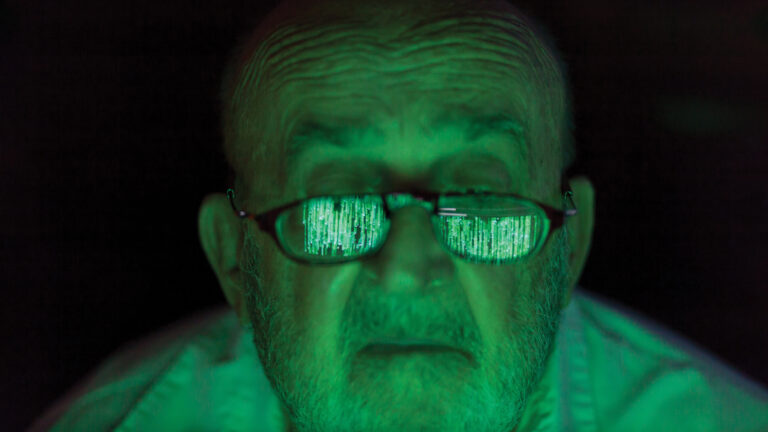
Catherine, a freelance writer and editor based in Chicago, has written about healthcare and higher education for more than two decades. With 90-plus awards in communications, she is well-versed in storytelling.
Geriatric-certified emergency departments aim to improve care for aging population
Have you ever had to take a a parent or other older adult to the emergency department? It can be complicated, as you struggle to remember their medications and health conditions. But emergency departments across the country are recognizing that as the U.S. population ages, they need to make changes to address the increasingly complex needs of older adults.
Traditionally focused on acute emergencies like heart attacks and accidents, many emergency departments (EDs) are modifying to meet the broader challenges that older patients face. This shift has led to the growth of geriatric-certified EDs — specialized units that provide tailored care to the aging population.
“We’ve known for decades that the traditional [ED] model struggles to meet the needs of medically and socially complex older adults,” says Kevin Biese, MD, an emergency medicine physician in North Carolina and founding chair of the Geriatric Emergency Department Accreditation (GEDA) program of the American College of Emergency Physicians. “Older patients come to the [ED] not just with one big issue but often with multiple, interconnected problems. This calls for a different approach, one that looks beyond just fixing the immediate issue and focuses on the broader picture — like preventing future falls or managing medications.”
Launched in 2018, GEDA has already accredited more than 500 hospitals, with certified geriatric EDs handling approximately 4 million older-adult visits in 2023 alone. GEDA evaluates hospitals to ensure they meet the highest standards of care for older adults. They give them a rating of bronze, silver, or gold, indicating their level of specialized staff training types of resources for older patients.
What sets geriatric EDs apart?
One key distinction of geriatric-certified EDs is their focus on what Biese calls “medically and socially complex” care. For example, a fall for a 30-year-old might rank as a minor incident, but for an 80-year-old, it could signal deeper issues, such as medication side effects, mobility challenges, or unsafe living conditions.
“Emergency departments weren’t designed for this level of complexity,” Biese says. “Geriatric-certified EDs focus on multidisciplinary care, bringing in specialists like pharmacists, physical therapists, and social workers to ensure older adults are treated holistically.”
Another significant difference is the training involved. All geriatric-certified EDs must have physician and nurse leaders who undergo specialized training in senior care. At higher levels of certification, the entire staff — from doctors to nurses to support staff — is trained in how to best care for older patients.
The certification process provides hospitals with a roadmap for improving care and also helps secure resources. “Hospitals face competing priorities, but accreditation helps move geriatric care higher up the list,” Biese says. “It allows hospital leaders to calculate the cost of implementing these changes and justifies the investment.”
While certification doesn’t come with higher Medicare reimbursement, Biese says that accredited EDs have seen financial benefits through better resource utilization. The GEDA-certified hospitals often end up using their inpatient beds more strategically, improving their operating margins, Biese says. Additionally, hospitals may increase their patient population as public awareness of the accreditation grows, drawing more older people.
Chicago’s push for certification
On Chicago’s South Side, St. Bernard Hospital’s ED earned a bronze-level geriatric accreditation from the American College of Emergency Physicians in January. The hospital partnered with the Center for Better Aging, a community-based healthcare center for adults age 50 and older, to achieve certification and run the program.
“This really has been a successful partnership, and I look forward to gaining more clientele, meeting the needs of the patients,” says Joy Greer, DNP, the nurse manager of St. Bernard’s ED.
Greer says the hospital’s goal to better serve its older adult population drove the certification. The process involved aligning the specialized team with GEDA’s criteria and enhancing resources for more holistic, patient-centered care. Key changes included:
- Providing easy-to-read discharge instructions
- Having a clinical pharmacist for medication reconciliation
- Collaborating with Center for Better Aging geriatric physicians
The ED also offers additional food options, durable medical equipment, and social worker support to address social determinants of health.
Greer says St. Bernard views the certification as a cost-effective measure to attract more older patients and bolster its reputation for quality geriatric care. Since earning certification, the ED has seen a steady increase in use, and the hospital plans to continue upgrading its services to attain higher accreditation levels.
Ranked, but not certified
Some Chicago hospitals are nationally ranked in geriatrics without the GEDA certification, such as Rush University Medical Center and Northwestern Memorial Hospital, ranked #10 and #11, respectively, by U.S. News & World Report.
Although Northwestern’s GEDA certification has lapsed, its geriatric ED program remains robust, with plans for future expansion, according to Scott Dresden, MD, director of the Geriatric Emergency Department Innovations program at Northwestern.
“Our goal is to address not just the chief complaint but the underlying health issues,” Dresden says. “We screen all older patients for frailty, and our specially trained geriatric nurses perform comprehensive assessments to identify risks like medication complications, dementia, and fall hazards.”
Dresden says that this proactive approach helps prevent unnecessary hospital admissions, which can be risky for older adults. It also has reduced readmissions and significantly increased Medicare savings. However, he adds, “If we’re saving Medicare money and improving outcomes, there should be financial incentives for hospitals to adopt this model.”
Currently, Northwestern’s program operates at its downtown hospital only, but there are plans for expansion. “We know this model works, and it’s well received by doctors and patients alike,” Dresden says. “We’re actively exploring ways to implement it at our other sites, each of which presents unique challenges.”
Dresden hopes Northwestern will reapply for GEDA certification across its entire health system, advocating for more hospitals nationwide to follow this model. “It gives hospitals a framework for improving care at different levels. Whether it’s a small community hospital or a large academic center, geriatric emergency care is worth pursuing.”
Challenges for the future
With the U.S. aging population rapidly increasing, Biese sees the expansion of geriatric-certified EDs as essential. “We’re not just talking about more people getting older. We’re talking about more people living longer with complex medical conditions. The healthcare system must evolve to meet this need.”
While Illinois has yet to adopt a statewide push for geriatric-certified EDs, other states like California and New York have prioritized it. California, for instance, includes geriatric emergency care in its state plan for aging.
“Accreditation is a tool to improve the standard of care,” Biese says. “Ultimately, we want every person in the U.S. to know that they have access to emergency care designed for their specific needs. People aging is what winning looks like in healthcare.”
American College of Emergency Physicians’ Geriatric Emergency Department Accreditations in Illinois
The American College of Emergency Physicians has awarded 519 geriatric emergency department certifications nationwide. As of late 2024, 30 hospitals have received gold-level certification, 66 have received silver, and 423 bronze. In Illinois, these hospitals are:
- Advocate Condell Medical Center (Libertyville): Level 3 (Bronze)
- Advocate Good Samaritan Hospital (Downers Grove): Level 3 (Bronze)
- Advocate Good Shepherd Hospital (Barrington): Level 2 (Silver)
- Advocate Lutheran General Hospital (Park Ridge): Level 3 (Bronze)
- AdventHealth La Grange (La Grange): Level 3 (Bronze)
- Carle Bromenn Medical Center (Normal): Level 3 (Bronze)
- Carle Foundation Hospital (Urbana): Level 3 (Bronze)
- Jersey Community Hospital (Jerseyville): Level 3 (Bronze)
- Jesse Brown VA Medical Center (Chicago): Level 3 (Bronze)
- Marion VA Medical Center (Marion): Level 3 (Bronze)
- St. Bernard Hospital (Chicago): Level 3 (Bronze)
- Weiss Memorial Hospital (Chicago): Level 3 (Bronze)
- West Suburban Medical Center (Oak Park): Level 3 (Bronze)











